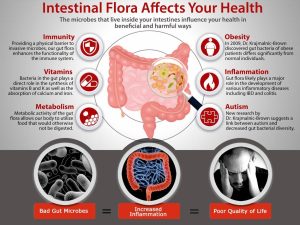
Vitamin D is a vital nutrient that plays numerous roles in the human body. Commonly referred to as the “sunshine vitamin”, it is unique as it can be synthesized by the body in response to sunlight exposure. This article explores the importance of vitamin D, its sources, and the various roles it plays in maintaining our overall health and well-being.
The Importance of Vitamin D
Vitamin D is crucial for maintaining strong and healthy bones. It enhances calcium absorption in the gut, ensuring a sufficient supply of this essential mineral for bone development and maintenance. In addition to its role in bone health, vitamin D is also involved in modulating the immune system, promoting cell growth and division, reducing inflammation, and supporting cardiovascular health. Adequate levels of vitamin D have been linked to a lower risk of chronic diseases, including certain cancers, multiple sclerosis, and type 1 diabetes.
Sources of Vitamin D
The primary source of vitamin D is sunlight. When our skin is exposed to ultraviolet B (UVB) rays from the sun, a chemical reaction occurs, converting a precursor compound in the skin into an active form of vitamin D. However, the amount of vitamin D produced depends on factors such as time of day, geographic location, skin pigmentation, and the use of sunscreen. While sunlight is the most natural way to obtain vitamin D, it can be challenging to get enough of it, especially for those who live in regions with limited sunshine or spend most of their time indoors. In such cases, dietary sources and supplements can help maintain optimal vitamin D levels. Fatty fish like salmon, mackerel, and sardines are excellent sources of vitamin D. Other food sources include fortified dairy products, egg yolks, and beef liver. However, it is important to note that most foods do not naturally contain significant amounts of vitamin D, which is why sunlight exposure or supplementation is essential.
The Role of Vitamin D in Bone Health
Vitamin D works synergistically with calcium to support proper bone health. Without sufficient vitamin D, the body cannot absorb as much calcium from the diet, leading to weakened and brittle bones. This deficiency can increase the risk of developing conditions like osteoporosis, particularly in older adults. Furthermore, vitamin D helps regulate the levels of calcium and phosphorus in the blood, promoting mineralization and maintaining bone mass. It also prevents the release of parathyroid hormone, which can otherwise deplete calcium from the bones, causing them to become weak and fragile.
Immune System Modulation
Vitamin D plays a critical role in the proper functioning of the immune system. It helps to regulate the immune response, encouraging an appropriate reaction to pathogens while preventing an excessive inflammatory response. Vitamin D also supports the production and function of immune cells, including T-cells and macrophages, which play pivotal roles in combating infections. Research suggests that vitamin D deficiency may contribute to increased susceptibility to various infections, including respiratory tract infections and autoimmune diseases. Maintaining adequate levels of vitamin D can help support a healthy immune system, especially during flu seasons and other periods of increased disease risk.
Cardiovascular Health
Emerging studies indicate a potential link between vitamin D deficiency and an increased risk of cardiovascular diseases. Vitamin D has been shown to have several cardiovascular benefits, including maintaining blood vessel health, reducing inflammation in the arteries, and regulating blood pressure. Moreover, vitamin D deficiency has been associated with an increased risk of heart attacks, congestive heart failure, and stroke. Ensuring sufficient vitamin D levels may help promote a healthier cardiovascular system, although more research is needed to better understand the mechanisms behind these findings. Vitamin D, the “sunshine vitamin”, plays a crucial role in maintaining our overall health and well-being. From supporting bone health and immune system function to potentially reducing the risk of chronic diseases, vitamin D is an essential nutrient that should not be overlooked. While sunlight remains the best natural source of vitamin D, dietary sources and supplements can be utilized to meet requirements, particularly for those who have limited sun exposure. Remember, it is always recommended to consult with a healthcare professional before starting any supplementation regimen.

